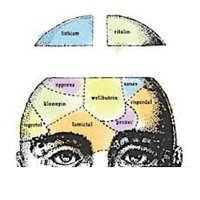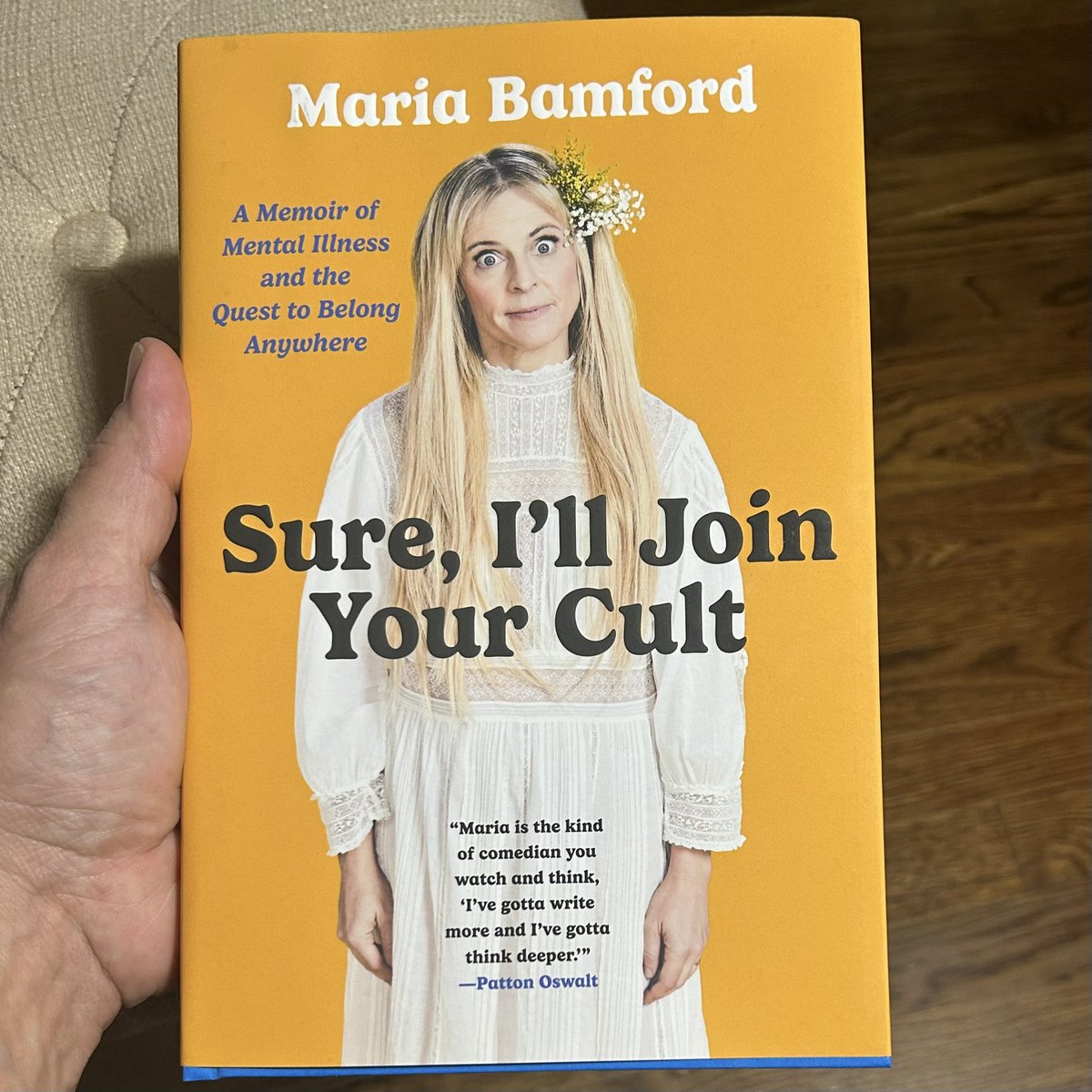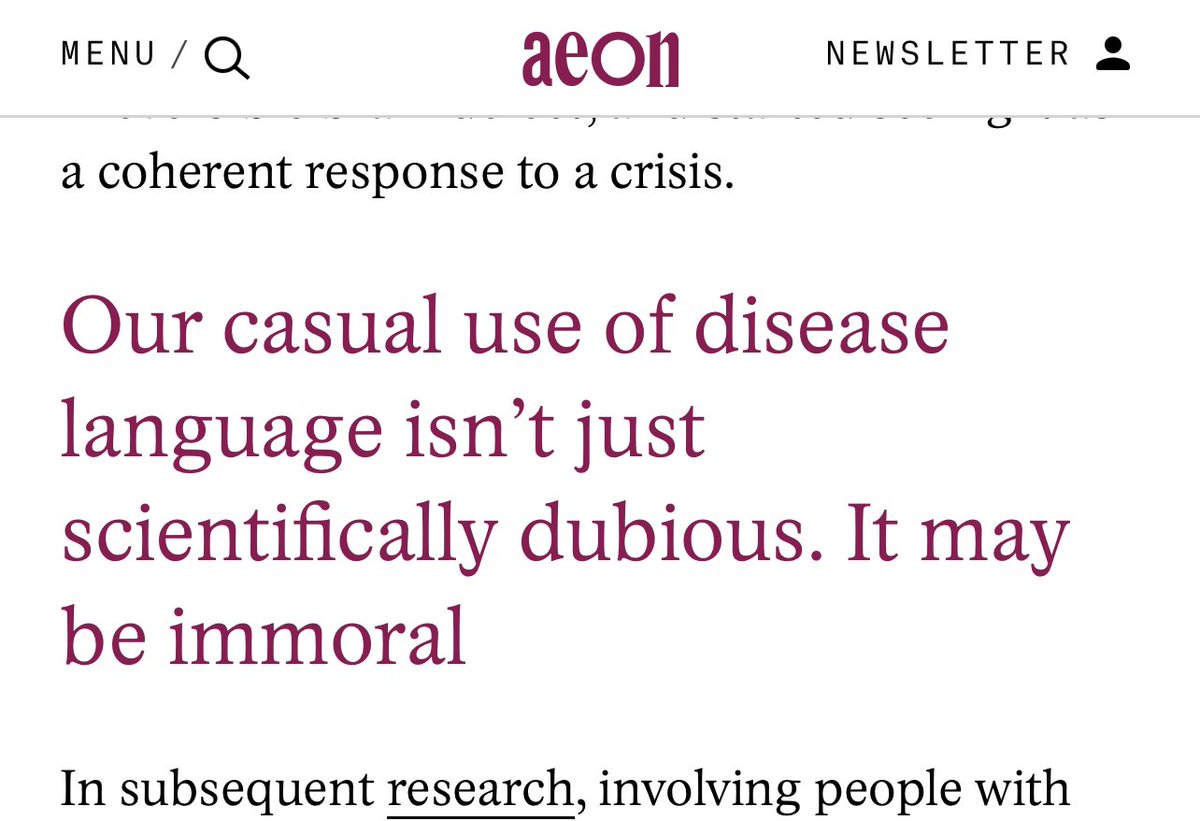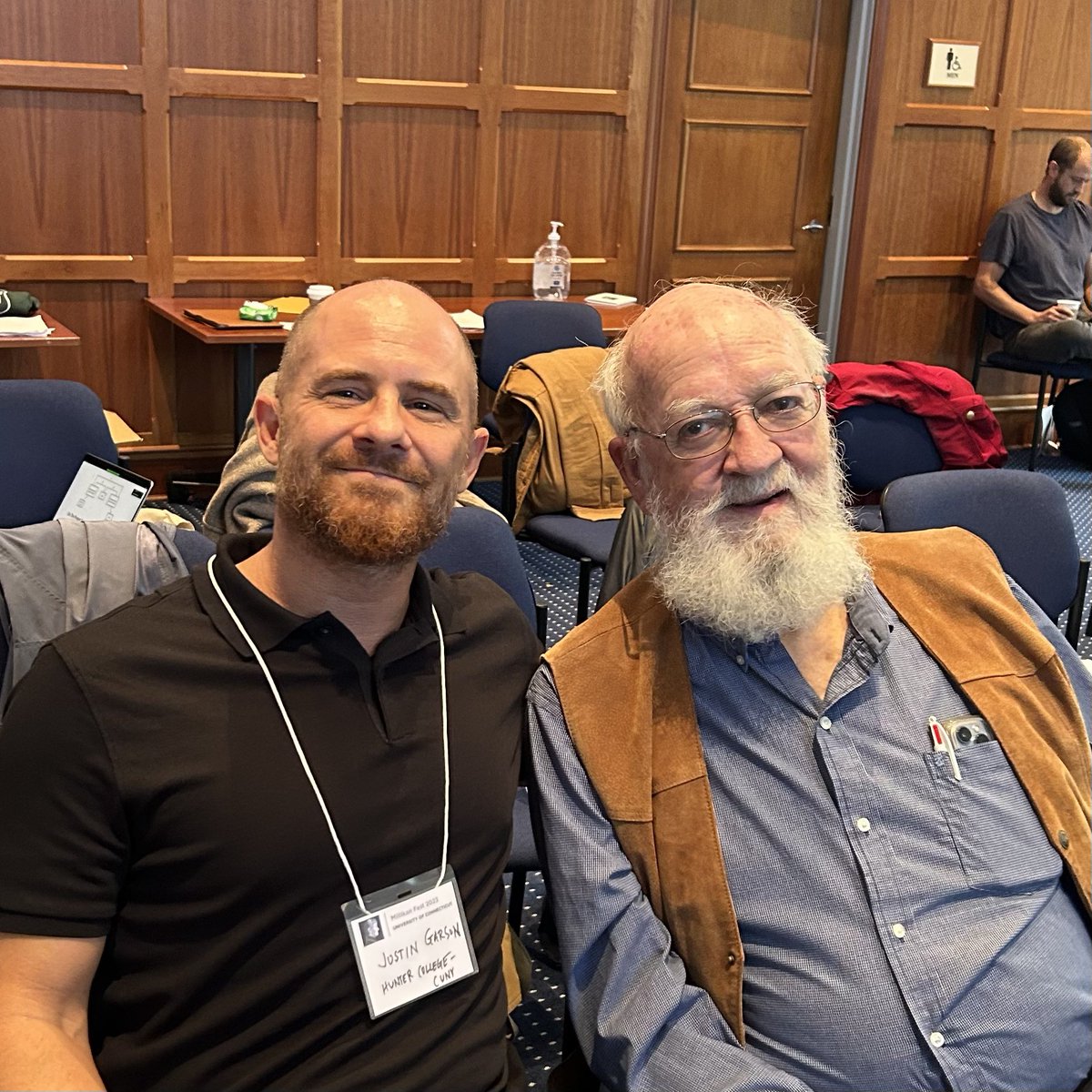
Justin Garson
@justin_garson
THE MADNESS PILL (@StMartinsPress, forthcoming) | MADNESS (Oxford, 2022) | Philosopher, CUNY | Contributor @PsychToday @aeonmag | rep @Vogelrachelm
ID:1524958733415194637
https://justingarson.com/ 13-05-2022 03:44:42
6,2K Tweets
12,6K Followers
2,9K Following

Happy to say that Harriet Fagerberg and I are writing a book, Biological Functions, for the Cambridge Elements series, with a focus on their role in medicine & psychiatry. It’s just heartbreaking that folks are still so confused about them after all these years… Harriet Fagerberg








Beyond the “Chemical Imbalance” Theory: An Interview With Prof. Joanna Moncrieff, via Psychology Today Justin Garson Dr Joanna Moncrieff
madinamerica.com/2023/10/beyond…






